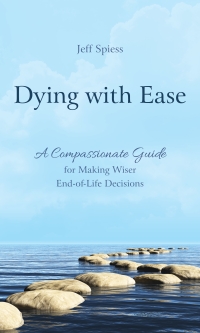Best Care is Palliative Care!
One common study design in research for patients with far advanced cancer is to randomly assign patients to receive either a new treatment or “best supportive care.” It is important, in evaluating the clinical usefulness of such studies, to know what that care involved and that both groups of patients received the same types of supportive care.
usefulness of such studies, to know what that care involved and that both groups of patients received the same types of supportive care.
Best supportive care must include palliative care, an approach that improves the quality of life of patients and their families facing the problems associated with life-threatening illness, through the prevention and relief of suffering by means of early identification and impeccable assessment and treatment of pain and other problems, physical, psychosocial, and spiritual (WHO). In addition, for some patients, palliative care might even extend life expectancy. An increasing number of hospitals and medical practices have added palliative care to the services they offer, though just how it gets paid for varies. I would like to quickly illustrate two perspectives, one academic and one practical.
A recent research report involved patients with advanced colon cancer who had received all available therapies and had no other anticancer treatment options. Two thirds of the patients received monthly intravenous infusions of two drugs with tongue-twisting names: tremelimumab and durvalumab. The other patients received no anticancer treatment, but everyone in both arms received best supportive care. The results showed that the group treated with the drugs lived longer (median 6.6 vs. 4.1 months) but had more serious though no life-threatening toxicity. This was a well-done randomized study, and I choose it as an illustration only because it recently arrived in my inbox. The research design contains a common but gaping flaw: it assumes that “best supportive care” has no impact on survival. If the group receiving the drugs also received more aggressive palliative care, and that is possible since they had more frequent encounters with their medical providers, then it is difficult to know if they lived longer because of the drugs they received or because they were taken care of better. Researchers in studies like this need to define what the best supportive care involves, or at least include some information of how many patients were referred to palliative care or hospice services, and when. Adding this to study design will increase costs (this research was funded by AstraZenica and the Canadian Cancer Society) but will lead to more reliable information and hopefully better patient outcomes.
In Canada, as well as many other countries, palliative care is part of the healthcare system, paid for just as other medical care is. In the United States, though, the only reliably funded palliative care is hospice, and that is only available for patients with terminal prognosis who choose to forego further disease-directed 
The health care system in the United States is fragmented, inconsistent, and frequently unfair, and, given the political climate, that is not likely to change soon. To receive the best care and best benefits it is often necessary to be your own advocate. So, if you or someone you care about has a serious illness, especially one that is likely to shorten their life, like cancer, heart failure, COPD, or chronic kidney disease, find out what palliative care services are available, and request (or demand) referral now. You can keep on getting therapy for your disease, and improved quality of life might even help you endure your treatment. In this situation, the best care must include palliative care.
Reference: Chen, EX, et al. Effect of Combined Immune Checkpoint Inhibition vs Best Supportive Care Alone in Patients With Advanced Colorectal Cancer. JAMA Oncology 2020, 6:831-838.
Medical care photo by National Cancer Institute on UNSPLASH

